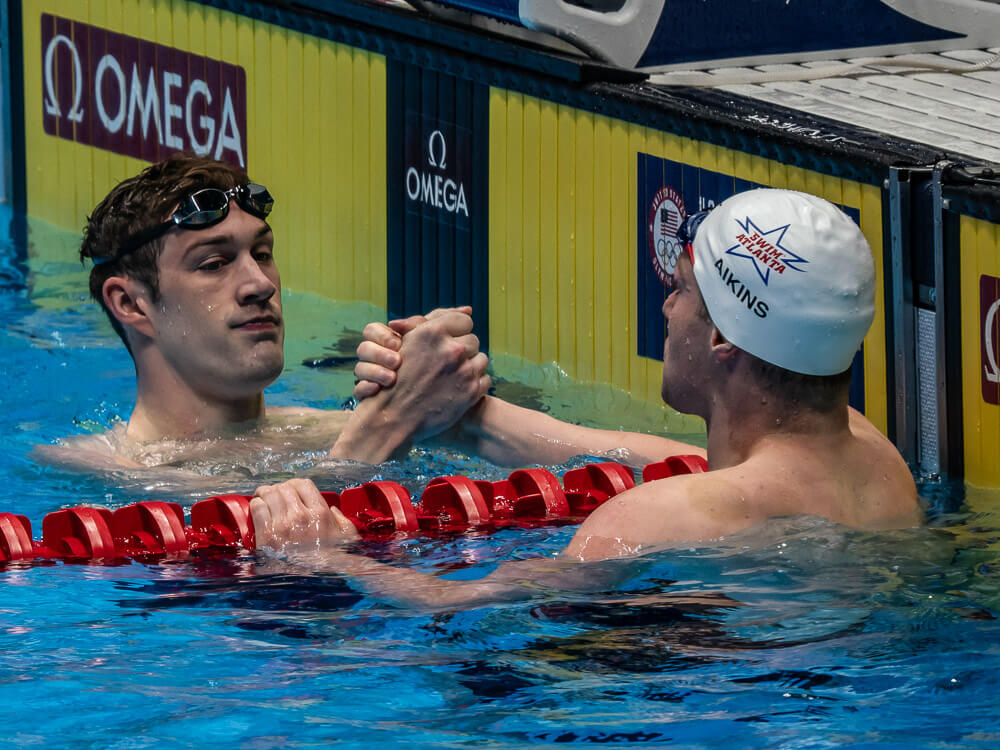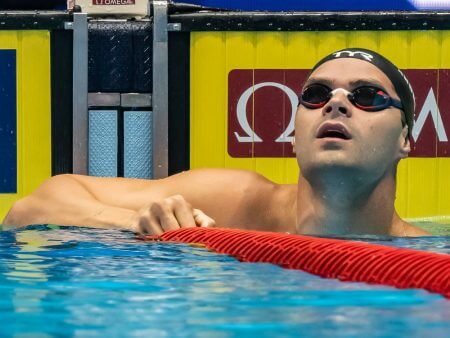American Men Seeking Answers in Stroke Events in Fort Lauderdale

American Men Seeking Answers in Stroke Events in Fort Lauderdale
Nine months past the Paris Olympics, and the international outlook for United States swimming has changed relatively little. The women maintain the deepest team in the world, likely to arrive in Singapore for this year’s World Championships with medal favorites in every event. That’s in line with the results from last summer’s Games, when American women won medals in 10 out of 13 events while finishing fourth by merely one hundredth in two further races (50 freestyle and 100 breaststroke).
The men’s team, on the other hand, remains surrounded by serious questions following an Olympics when four days passed without an individual-medal-winning performance. The team finished with just six individual podium finishes, and the swimmers responsible for two of them, 31-year-old Nic Fink (100 breaststroke) and 29-year-old Ryan Murphy (100 backstroke), have not competed since. These two swimmers played a key role last summer beyond their individual performances, handling the first half of the gold-medal-winning mixed 400 medley relay team as well as the men’s squad which took silver.
The other swimmers who won medals last year all seem poised to challenge again on the global level in 2025, with Bobby Finke, Carson Foster and Luke Hobson all entered at this weekend’s Pro Series meet in Fort Lauderdale. Don’t expect Finke, the two-time Olympic champion and world-record holder in the 1500 free, to show anything special this weekend, but he is always dependable in international racing. Similarly, the results posted by Foster and Hobson so far this season means little worry about their potential for the upcoming meets of consequence.
But in the stroke events, there are major questions for the America men to answer, and perhaps the racing in Fort Lauderdale could provide some hints. The butterfly events appear the most desperate after no U.S. men qualified for a top-eight finish in the 100 or 200 fly in Paris. Luca Urlando gave the team some hope over 200 meters when he blasted a time of 1:52.37 at the last Pro Series stop in Sacramento while Foster could also provide some reinforcement if he chooses to again focus on an event in which he was a World Championship finalist in 2023.

Michael Andrew has the potential to post strong times in the breaststroke events and 50 butterfly — Photo Courtesy: Peter H. Bick
In the 100 fly, the best times thus far in 2025 have come from Shaine Casas (50.82) and Urlando (51.32), with Casas’ mark quicker than what it took to make the final in Paris. The Fort Lauderdale meet will see the re-entry of Caeleb Dressel to the mix, and we’ll see if he can reach 50-second territory or at least come close in his first appearance post-Paris. As for the 50 fly, both Dressel and Michael Andrew have won World Championship medals in the event, and even without any Americans close to the top of the world rankings at this stage, having these two sprint butterfly specialists as options is good news with the 50s now Olympic events.
As for breaststroke and backstroke, any development would be positive after so many years of depending on Fink and Murphy. Andrew is the only American swimmer entered in the Fort Lauderdale meet who has ever broken 1:01 in the 100 breast, and it has been four years since he came anywhere close to his American record of 58.14. As for the 200-meter event, Matt Fallon broke the American record at last year’s Olympic Trials, but he bombed out of the event in the Paris semifinals. For Fort Lauderdale, the top four seeds in the 200 are all international swimmers, with no American entered under 2:11.
Of course, the Fort Lauderdale field is not representative of what will take place in June at U.S. Nationals, with 200-meter specialists such as Fallon, Olympic finalist Josh Matheny and NCAA champion Jassen Yep among those in position to impress. The situation in the 100 looks much more desperate, with Matheny and Andrew the only Olympic Trials finalists appearing likely to race this summer. Julian Smith became the fastest 100-yard swimmer ever this season, but he indicated the NCAA Championships would be his final meet. The 100 is the most important of the breaststroke distances because of implications for both medley relays.
Options are more plentiful in backstroke, where two-time Hunter Armstrong will have a chance to step into a larger role this season. Armstrong has won world titles in the 50 and 100-meter races, and he is a former world-record holder in the 50. The top American 200 backstroker this year could be Keaton Jones, an Olympic finalist in the event last year, but he will not race in Fort Lauderdale. This season could provide a breakout opportunity for Jack Aikins, who finished heartbreakingly close to Paris qualification with a pair of third-place finishes in the backstroke events at Olympic Trials.
This weekend will provide the best indication yet of which swimmers will be ready to take the next step and begin the new quadrennium with momentum. Given the struggles of the American men in recent seasons, the opportunities exist. The medley relays have remained U.S. strengths, but a lack of results in the 100-meter races moving forward could spell additional worries.



